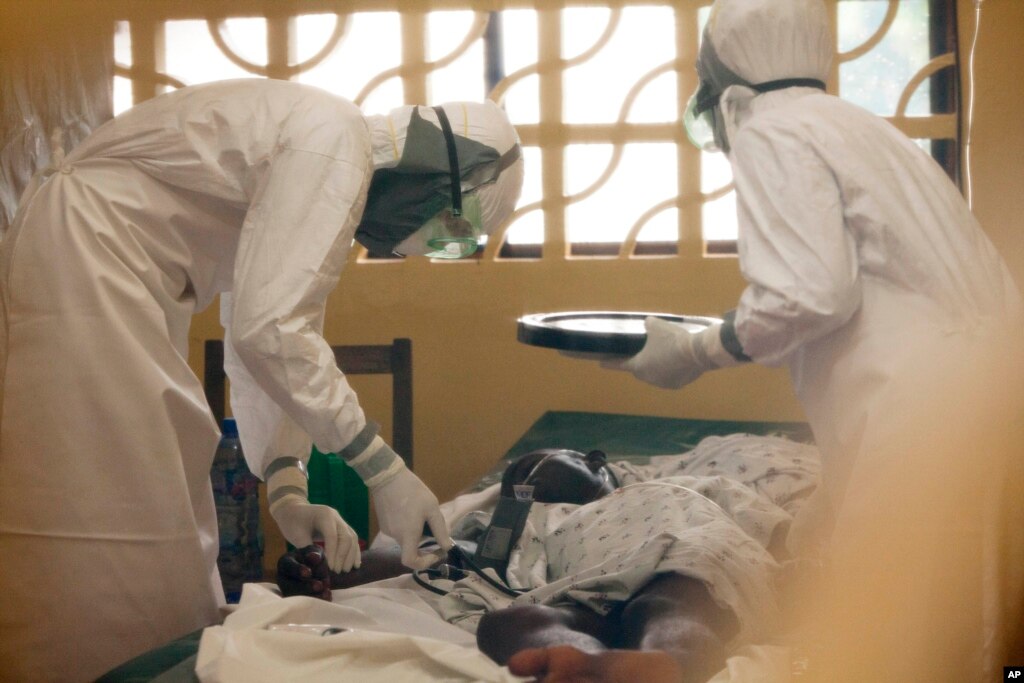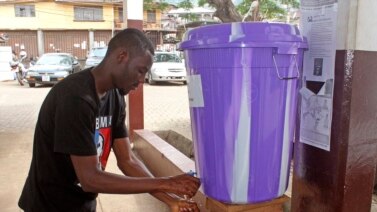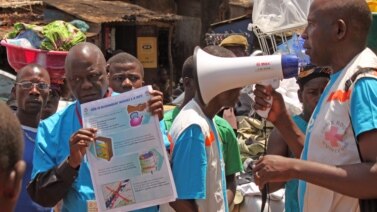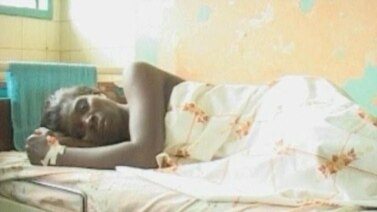
An aid group reported this week that Ebola has infected a second American medical worker in Liberia. The American-based group, Samaritan’s Purse, has medical experts working in the country.
Samaritan’s Purse announced Sunday that Nancy Writebol is in stable, but serious condition at a hospital in Monrovia, the Liberian capital. She was helping with Ebola patients at the Case Management Center when she became infected.
The aid group reported last Saturday that the virus also infected American doctor Kent Brantly. He is the medical director at the Case Management Center. He was taken to an isolation center for treatment. Such centers are used to keep the public away from patients suffering from infectious diseases.
Melissa Strickland works for Samaritan’s Purse. She says the doctor is receiving treatment, but is not “out of the woods,” meaning he is not out of danger.
“We are hopeful for his recovery. But Ebola is an incredibly dangerous, deadly disease so it is very premature to say he is out of the woods.
The news of the two Americans testing positive for Ebola follows the death of Samuel Brisbane. Dr. Brisbane worked at Liberia's largest hospital. He was treating Ebola victims when he contracted the virus. He died recently at a treatment center near Monrovia.
Melissa Strickland says there are a number of reasons why the virus is difficult to contain. She says that many areas affected by Ebola lack developed infrastructure, meaning good roads and other public services.
Ms. Strickland says that “superstition,” “stigma” and misinformation are adding difficulties to an already dangerous situation. A “superstition” is a belief based on fear of the unknown. And “stigma” is a poor opinion of someone based on their beliefs or, in this case, their having a disease.
“You are dealing with countries that are in the developing world. You do not see infrastructure that you would see here in the United States. And the population... there is a lot of superstition, a lot stigma associated with the disease, a lot of misinformation associated with the disease.”
Melissa Strickland says Samaritan’s Purse is treating people infected with Ebola. But at the same time, the group and other organizations are seeking to educate communities about the disease.
“So along with our direct clinical care, the treatment of Ebola patients themselves, we and other organizations have undertaken significant public awareness campaigns to reach communities, educate them, both on recognizing symptoms early and on the prevention of the disease. We have a tremendous battle on our hands.”
And Ms. Strickland is appealing for help in what she calls a battle against Ebola.
“What we need is a significant, international effort to battle this disease. We welcome other NGOs and other agencies who will come along side us in this fight.”
I’m Anna Matteo.
This report was based on stories from reporters Victoria Macchi, Michael Brown, Heather Murdock and Carol Pearson.


